Baby teething is a procedure through which the baby gets the first tooth cutting through the gums.
As a parent, it’s normal to be concerned about the teething process and the resulting pain your baby might have.
Knowing the primary signs of teething in babies can help you prepare for the ordeal.
The Kingdom Of Baby briefs you about teething in babies, signs of teething, and remedies to ease your baby’s pain.
When Does Teething Start In Babies?
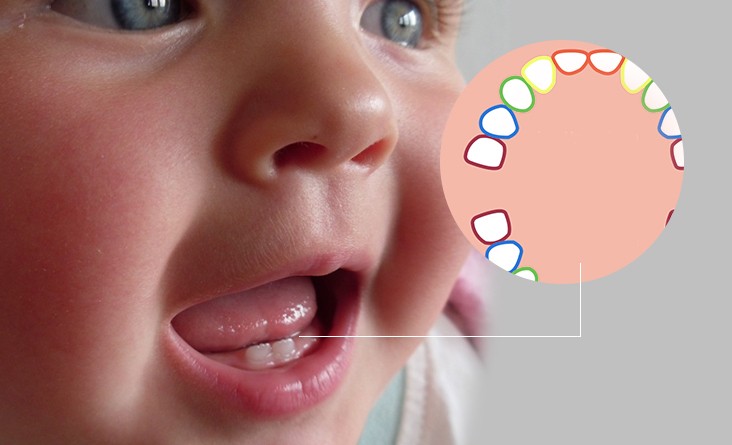
For most babies, teething regularly begins between 6 and 12 months. Furthermore, babies have their set of primary teeth by the age of three.
Teething In Order Of Eruption
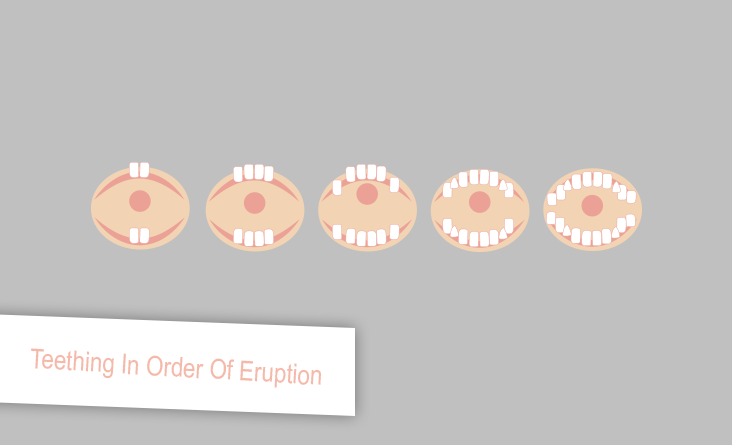
Babies get their teeth in sets. The lower front teeth come first, and the upper front teeth usually erupt a couple of months later. Then appear the lower and upper lateral teeth, followed by first molars, canines, and second molars. So, by three years of age, your baby would have a set of 20 primary teeth.
Baby Tooth Timeline
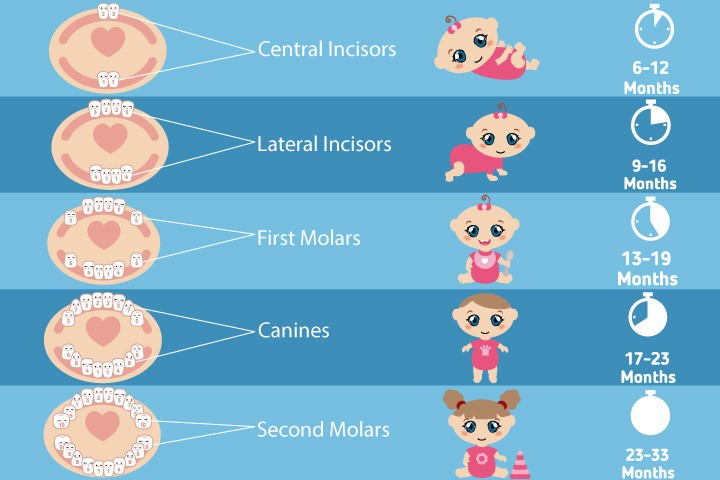
This is the typical growth schedule of teeth but it is not necessary for all the babies to teeth as per the schedule. Some may have them earlier while some may have later.
Read Also:
When Should You Be Concerned If Your Baby Isn’t Teething?

The average age of teething is around six months. Teething before six months is considered early teething. If the baby is not teething until 13 months, then it is considered delayed teething.
Don’t worry if your baby’s teething is delayed; it varies from one child to another.
As long as your baby’s hair, skin, and bone growth are normal, there is nothing to worry about.
Delayed teething doesn’t indicate any problem in the overall development of your baby.
Teething Could Be Delayed Due To:
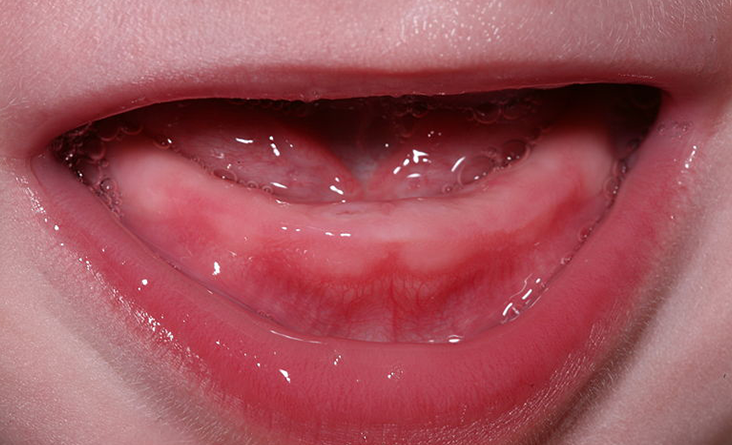
- hereditary reasons
- poor nutrition
- hypothyroidism
- premature birth
However, if you think that there is no family history and your child is getting adequate nutrition, and yet your baby hasn’t started teething, then you must consult your doctor. But first, look out for the signs as they would tell you when the tooth might appear.
What Are The Signs Of Teething?
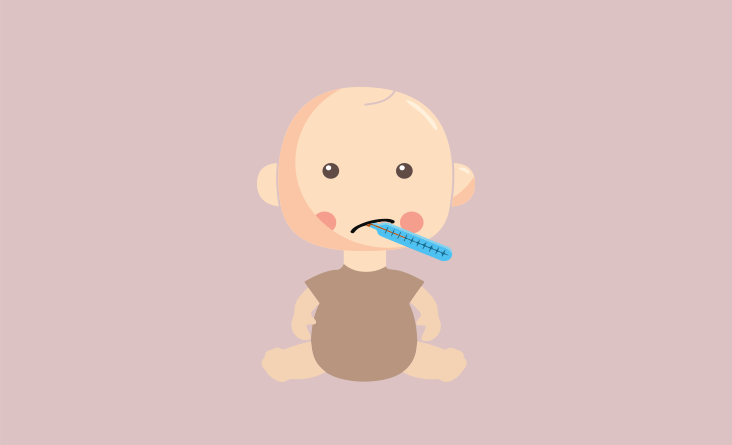
Babies turn fussy because due to soreness and swelling when the tooth cuts through the gums. The symptoms appear three to six days before the tooth erupts and stops once the tip of the tooth comes out of the gums.
Teething is an easy and quick process for some babies, but for some, it can be slow and painful.
The Typical Signs And Symptoms Of Teething Are:
- Red and swollen gums, which are bruised and sore.
- Excessive drooling as the baby keeps every object in their mouth. The drooling can last up to several weeks until a tooth erupts.
- Rubbing of the ear. The pain in the gums causes ear pain too, as gums and ears share the same neural pathways.
- Excessive biting and chewing due to the pressure of the eruption of teeth through the gums. Babies bite and chew everything and anything to get relief from the pain. Your baby’s sleep can be disturbed because of lingering pain. Sore gums make your baby restless, so they tend to express that by being cranky and irritable.
- Lack of interest in food or eating. The pressure of sucking or chewing food can cause more discomfort to the already aching gums; so babies lose appetite and sometimes reject food altogether.
- Babies pull their cheeks due to the discomfort around the jawline and cheeks.
- There can be mild rashes around the mouth, and on the chest due to excessive drooling.
- Sometimes teething is accompanied by mild fever.
If The Symptoms Are Severe Or If Your Child Has The Following Symptoms, Remember It Is Most Likely Not Due To Teething:
- Temperature above 101° Celsius
- Diarrhea
- A runny nose and cough
- Rashes on the body
In such cases consult your doctor. You should also take the baby to a doctor if they cry inconsolably due to excruciating pain.
If your baby has mild pain, then you can use home remedies to relieve the pain.
Remedies To Soothe Your Baby’s Teething Pain
It Is Agonizing For You To See Your Baby In Pain. Therefore, Help Them Get Some Relief With These Remedies:
- Wet soft cloth to chew on: Give your child clean, wet, cool washcloth to chew on. Cold objects ease the pain and reduce the urge to chew. If your baby doesn’t like cold things, give a regular teether at room temperature.
- Teethers: You can give your child frozen teething rings, as the texture massages the gums and the chillness numbs the pain. However, do not give them extremely cold objects as they can aggravate their discomfort.
- Frozen foods and popsicles: If your baby is on solids, give mesh teethers with frozen foods inside. Don’t give baby foods that pose a choking hazard. It is a good idea to give popsicles to toddlers.
- Massage: You can gently massage your baby’s gums with a clean finger or cold teething ring. It will soothe the pain. The babies might resist it, so impress them with some tactics.
- Pain reliever: Give acetaminophen or ibuprofen for infants above six months of age to reduce the pain. However, do it only if your doctor prescribes the medicine.
Note: You should not give aspirin to babies younger than 20 months as it is associated with Reye syndrome which is a rare but severe disease.
- Distract the little one: Give your baby a new toy, and spend more quality time with them. Do anything that could distract their mind from the pain.
- Give them extra love: No matter how ill your baby is, all they sometimes need is those extra hugs, cuddles, and kisses. Your warmth can work like magic.
- Solid foods such as cereal mix, yogurt, applesauce also reduce the pain. Teething causes bleeding of gums, and there can be a bluish lump in the mouth. You need not worry about it; just use a cool wet cloth to reduce the effect.
Read Also :
- Pregnancy Massage: Your Benefits Along With Your Baby
- Scarcity Of Energy and Vitality During Pregnancy
- Flu During Pregnancy: Everything You Need To Know
WOMEN STICK TOGETHER, SHARING IS CARING!


